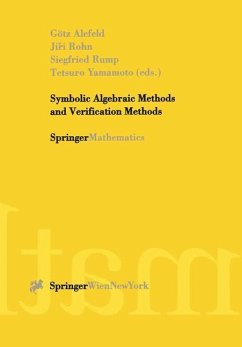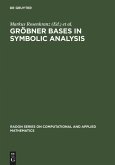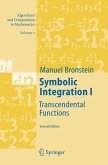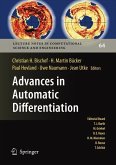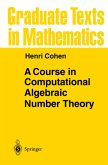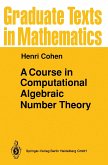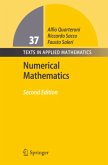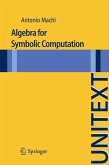The usual "implementation" of real numbers as floating point numbers on existing computers has the well-known disadvantage that most of the real numbers are not exactly representable in floating point. Also the four basic arithmetic operations can usually not be performed exactly. During the last years research in different areas has been intensified in order to overcome these problems. (LEDA-Library by K. Mehlhorn et al., "Exact arithmetic with real numbers" by A. Edalat et al., Symbolic algebraic methods, verification methods). The latest development is the combination of symbolic-algebraic methods and verification methods to so-called hybrid methods. - This book contains a collection of worked out talks on these subjects given during a Dagstuhl seminar at the Forschungszentrum für Informatik, Schloß Dagstuhl, Germany, presenting the state of the art.
The usual usual "implementation" "implementation" ofreal numbers as floating point numbers on exist iing ng computers computers has the well-known disadvantage that most of the real numbers are not exactly representable in floating point. Also the four basic arithmetic operations can usually not be performed exactly. For numerical algorithms there are frequently error bounds for the computed approximation available. Traditionally a bound for the infinity norm is estima ted using ttheoretical heoretical ccoonncceeppttss llike ike the the condition condition number number of of a a matrix matrix for for example. example. Therefore Therefore the error bounds are not really available in practice since their com putation requires more or less the exact solution of the original problem. During the last years research in different areas has been intensified in or der to overcome these problems. As a result applications to different concrete problems were obtained. The LEDA-library (K. Mehlhorn et al.) offers a collection of data types for combinatorical problems. In a series of applications, where floating point arith metic fails, reliable results are delivered. Interesting examples can be found in classical geometric problems. At the Imperial College in London was introduced a simple principle for "exact arithmetic with real numbers" (A. Edalat et al.), which uses certain nonlinear transformations. Among others a library for the effective computation of the elementary functions already has been implemented.
The usual usual "implementation" "implementation" ofreal numbers as floating point numbers on exist iing ng computers computers has the well-known disadvantage that most of the real numbers are not exactly representable in floating point. Also the four basic arithmetic operations can usually not be performed exactly. For numerical algorithms there are frequently error bounds for the computed approximation available. Traditionally a bound for the infinity norm is estima ted using ttheoretical heoretical ccoonncceeppttss llike ike the the condition condition number number of of a a matrix matrix for for example. example. Therefore Therefore the error bounds are not really available in practice since their com putation requires more or less the exact solution of the original problem. During the last years research in different areas has been intensified in or der to overcome these problems. As a result applications to different concrete problems were obtained. The LEDA-library (K. Mehlhorn et al.) offers a collection of data types for combinatorical problems. In a series of applications, where floating point arith metic fails, reliable results are delivered. Interesting examples can be found in classical geometric problems. At the Imperial College in London was introduced a simple principle for "exact arithmetic with real numbers" (A. Edalat et al.), which uses certain nonlinear transformations. Among others a library for the effective computation of the elementary functions already has been implemented.

